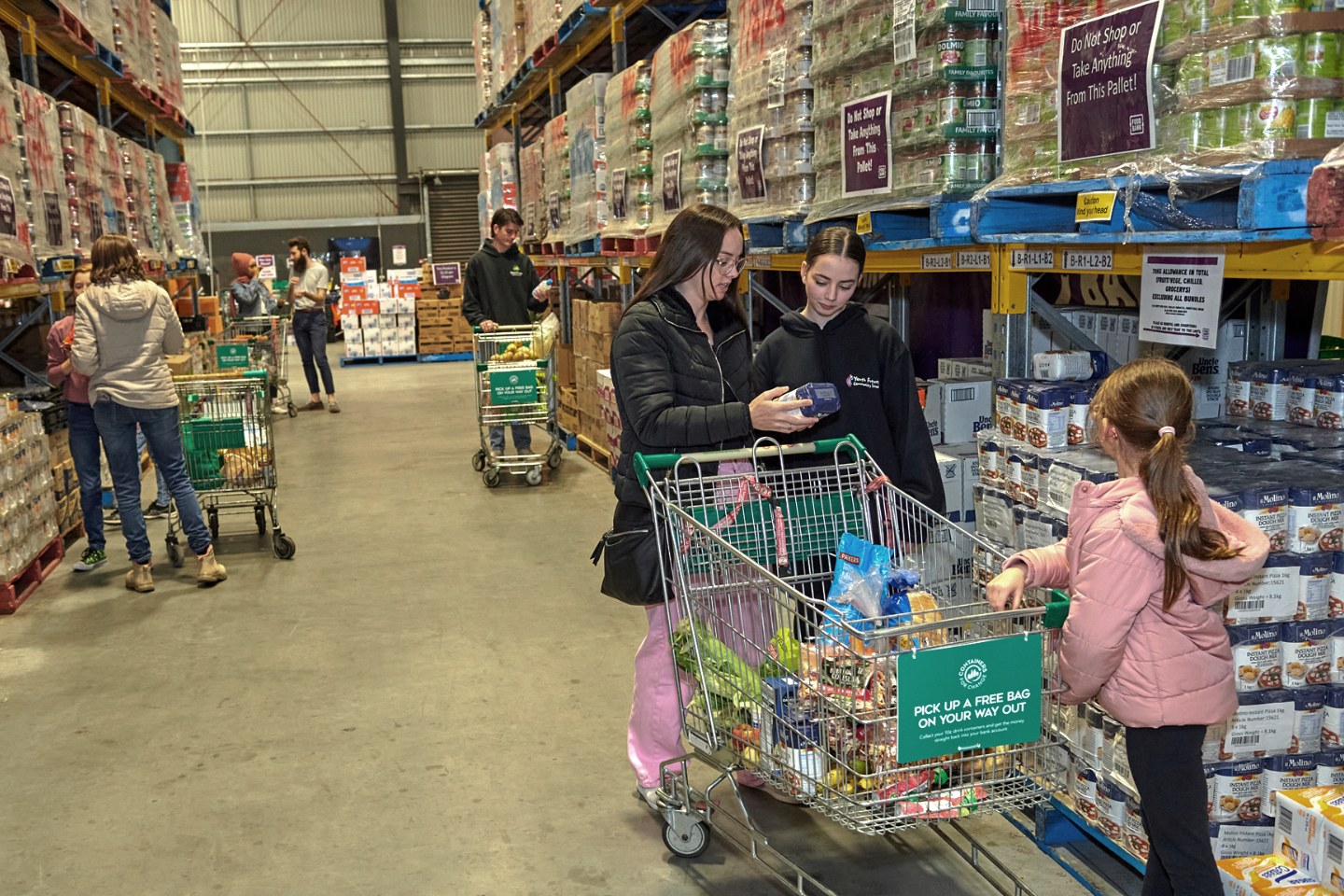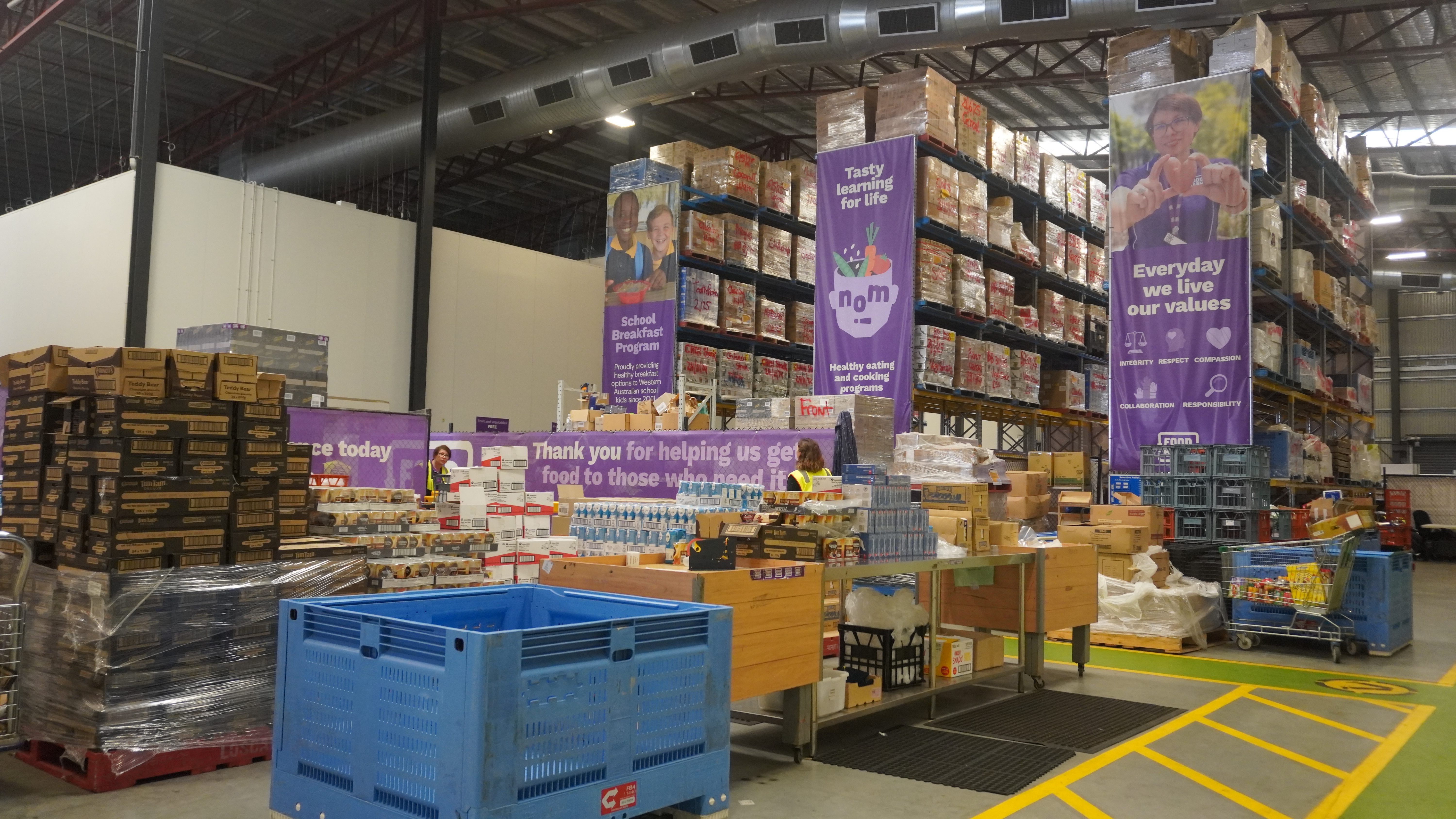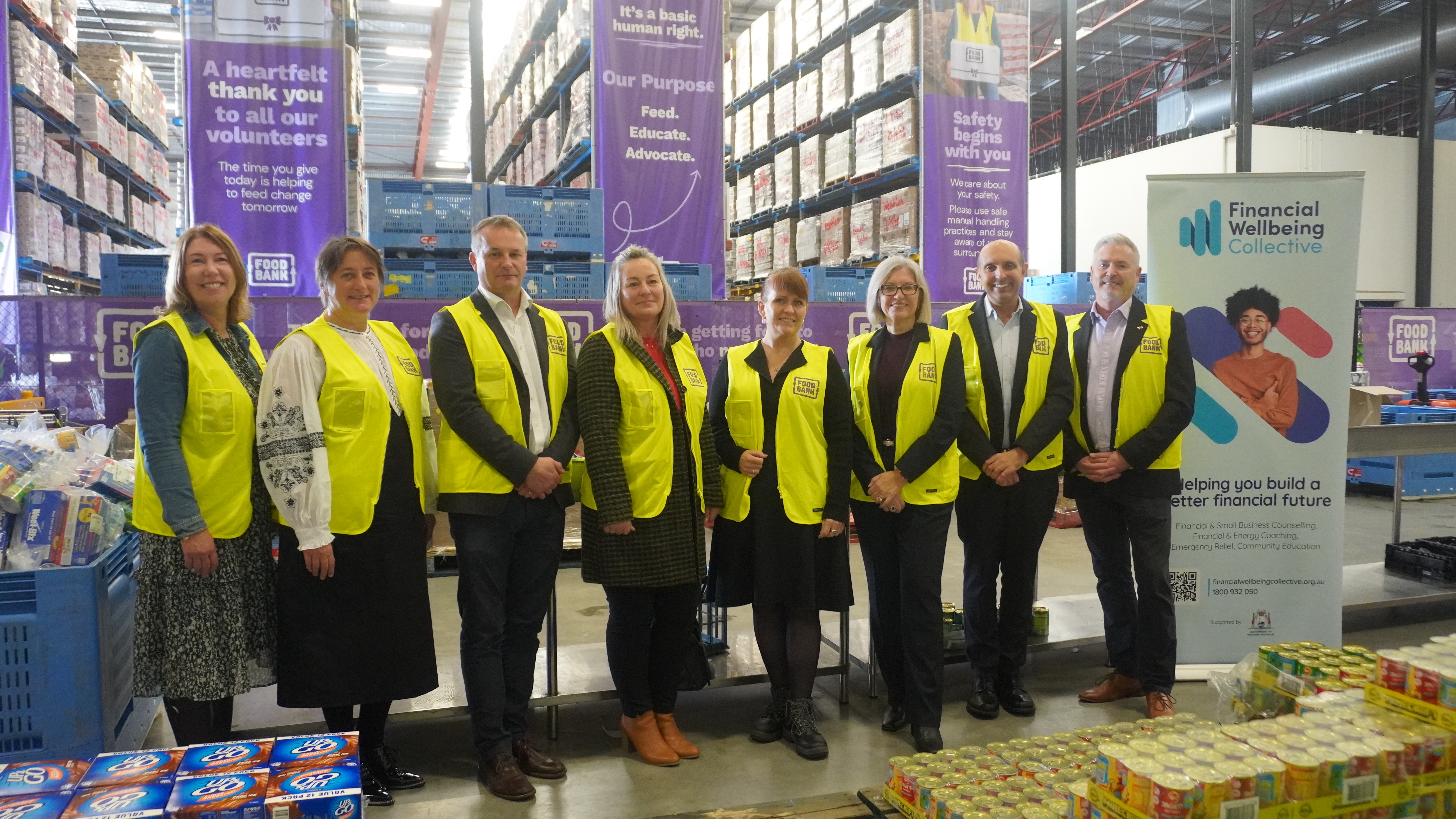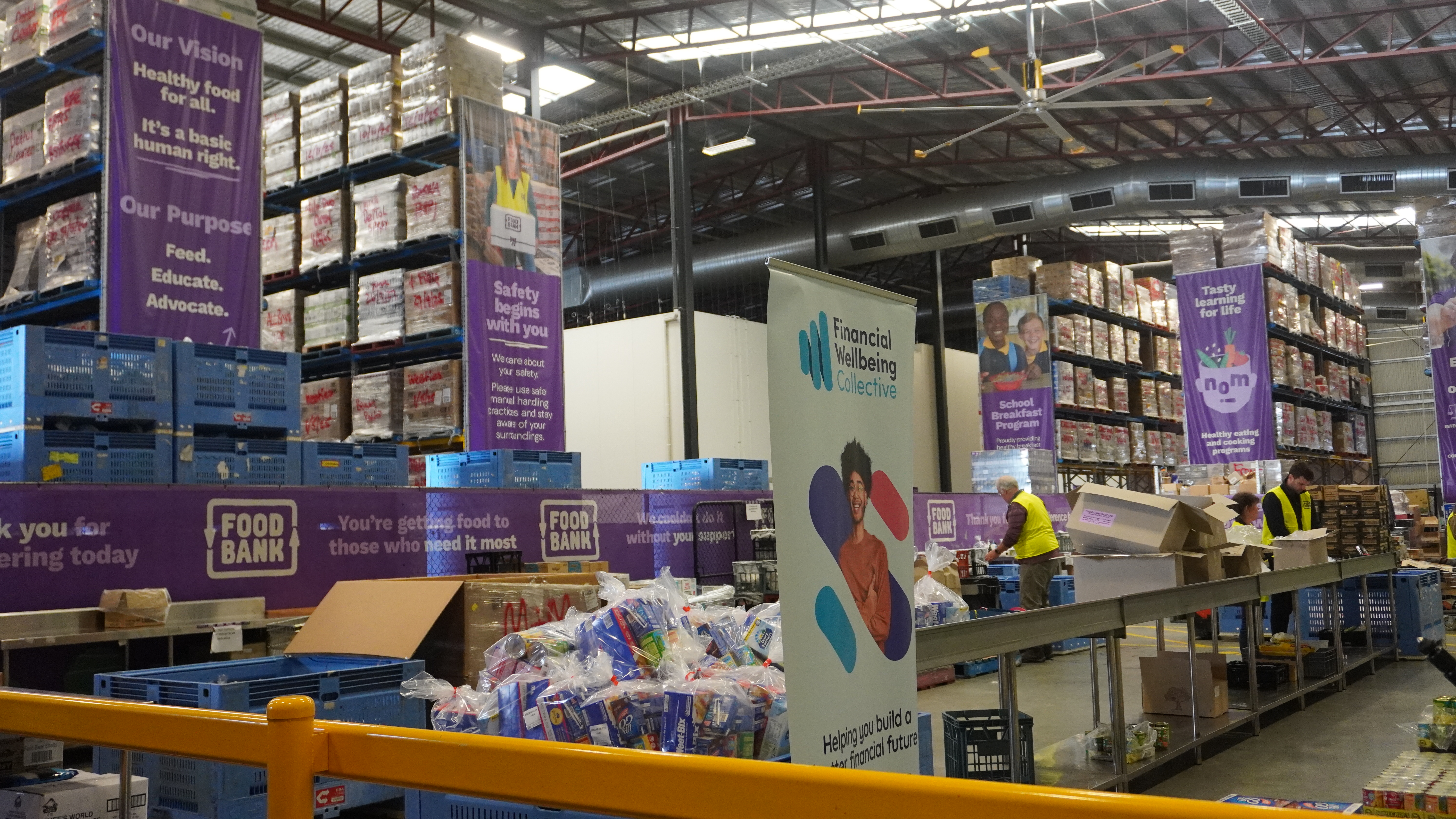Renewed awareness of current food insecurity and poverty levels has rippled across the country, with businesses urged to contribute to long-lasting solutions in the wake of National Food Bank Day.


Renewed awareness of current food insecurity and poverty levels has rippled across the country, with businesses urged to contribute to long-lasting solutions in the wake of National Food Bank Day.
On the first Friday of September every year, Australian community service providers take part in National Food Bank Day to advocate for change to food insecurity caused by the cost-of-living crisis.
Financial Wellbeing Collective (FWC) general manager Helena Jakupovic said businesses and individuals should play a contributing role in long-term solutions.
“We all have a responsibility to improve the community,” Ms Jakupovic said.
"National Food Bank Day is a great way of raising awareness about the hunger that currently exists in our community, but also encouraging tangible support to food banks."
FWC is a collaboration of 12 partner organisations providing a range of integrated, person-centred services in Western Australia to reduce the drivers and impact of financial hardship in the community.
Ms Jakupovic said the collaboration had been in operation for 10 years, with the team of organisations working to drive better outcomes for people and families in need.
“The Financial Wellbeing Collective enables an overarching umbrella of services with frontline delivery provided by our partners,” Ms Jakupovic said.
“Anglicare WA and Uniting WA are the two lead partners of the FWC, and Anglicare delivers our Emergency Relief and Food Access Service (ERFAS) on behalf of the FWC.”
The ERFAS has supported more than 50,000 clients since it was established five years ago, providing essential assistance from food and clothing to medical aid and bill support.

Foodbank WA focuses on providing nutritionally balanced support that helps create a foundation to thrive.
The service was a direct response to the COVID-19 pandemic, coming to fruition after many food relief providers had to close their doors, hindering people’s ability to access services.
“COVID really disrupted the system,” Ms Jakupovic said.
“Historically, if people were looking for support with emergency relief or food access, they would go to see a community services provider and they would be able to help them.
“To use Foodbank WA, you do need a referral to get access to food and to shop there, and people would typically get that from those community services providers.”
"National Food Bank Day is a powerful reminder that food is not just fuel; it’s dignity, it’s security, it’s connection." Foodbank WA CEO Kate O'Hara
In 2020, FWC worked closely with lead partner Anglicare WA to create the ERFAS and establish a contact centre for people to reach out to for help.
“It’s a number people can ring up to get emergency relief and food access,” Ms Jakupovic explained.
“What we do is provide them with a Foodbank referral, so they’re able to attend one of the Foodbank sites and shop there over a six-month period, enabling them to get cost-effective solutions to accessing food.
“With the cost of living the way that it is, a lot of people are finding it tough and we’re seeing more and more people who are missing meals or are prioritising feeding their children over the whole family just so they can get by and pay bills.”

Financial Wellbeing Collective general manager Helena Jakupovic says everyone has a responsibility to improve community.
FWC’s ongoing partnership with Foodbank WA also includes the designation of an on-site worker at the airport site three days per week.
This worker assists people face-to-face, providing immediate access to the Foodbank store and eliminating the need to visit an external service provider to attain a referral.
“Someone who walks into a food bank site but doesn’t have a referral would traditionally be turned away as a referral is required to enter, but by having a worker on-site, that person is immediately connected with someone who can not only provide a Foodbank referral but can sometimes give them a voucher to use in that shop as well,” Ms Jakupovic said.
“$30 at Foodbank WA goes a long way relative to what you would get for $30 in a Coles or Woolworths, so it really is a meaningful way of being able to contribute and make things better.
“In working in collaboration with Foodbank WA, we’re helping them focus on their core role, which is food distribution, while we support the clients to be able to access their services.”
"There’s a huge opportunity for the business sector to be involved, in terms of partnership and collaboration." FWC general manager Helena Jakupovic
Foodbank WA chief executive Kate O’Hara said food relief providers were committed to ensuring that people in need were getting enough to eat.
“National Food Bank Day is a powerful reminder that food is not just fuel; it’s dignity, it’s security, it’s connection,” she said.
“Too many Western Australians face the heartbreaking reality of skipping meals or going without.
“At Foodbank WA, we focus on nutritionally balanced support to provide a foundation to live, learn and thrive.”

Key leaders from Foodbank WA, ERFAS and the Financial Wellbeing Collective.
While increasing awareness about food insecurity among businesses and individuals is vital, awareness is also needed to engage those in need of food relief services.
“It’s around getting the message out there and broadening awareness because there are some people who may be doing it tough food-wise, but don’t know there’s help available,” Ms Jakupovic said.
“I think that’s difficult as well. When you're stuck, it’s hard to ask for help, and you don’t know what you don’t know, so that in itself can be quite challenging.
“Additionally, needing to ask for help, particularly with something as basic as food – an essential right for any human being – is actually very confronting.
“For most people, there’s a lot of shame and stigma attached to that, so what we’re trying to do is make it really easy for people to access help.”
Tangible solutions within reach
By promoting awareness, more can be done to solve the issue at hand. Ms Jakupovic said there was a plethora of avenues that enabled businesses to be a part of a lasting solution.
“Through Foodbank WA, you can actually donate hampers at Christmas to provide food to people,” she said.
“Foodbank WA also offers a lot of volunteering opportunities for people who perhaps want to be involved in a more tangible, meaningful way.
“There’s a huge opportunity for the business sector to be involved, in terms of partnership and collaboration.
“Corporates can participate in volunteering events on the Foodbank premises or they can provide access to food through distribution networks where maybe they’re food producers and sharing excess stock or leftover stock.
“Those are really tangible ways to help.”

The Financial Wellbeing Collective and Foodbank WA have an ongoing partnership.
Ms Jakupovic said donating was also a simple and direct way to make meaningful impact.
“That’s going to make the local community a lot better, particularly for those businesses that are WA-based,” she said.
“That’s a way they could really positively contribute to supporting food access for people, and funding also enables us to put people on the ground.
“We’re always looking for partners who are willing to support our financial support workers to be on-site.”
Businesses can support a range of programs, from ones that provide food in schools to ensure children are well-fed, to educational programs that teach young adults how to cook nutritional and delicious meals on a budget.
“Food is one of those essential basic rights and I think sometimes a lot of us don’t realise that some people don’t have that right and are really struggling to make ends meet,” Ms Jakupovic said.
“Sometimes it starts with one person and the more people who get involved and can support, either through awareness and sharing information around accessible stories or helping with donations, that’s incredibly important.
“It means that we can destigmatise food insecurity and we make it easier for people to access services.”
National Food Bank Day presents the opportunity to raise awareness and increase external involvement in solutions.
“Today we honour the growers, donors, volunteers, and supporters who stand beside us in the fight against hunger,” Ms O’Hara said.
“Every trolley or bag of groceries, every warm meal, every piece of fresh produce handed over carries more than just food. It carries hope.
“National Food Bank Day is a chance to reflect on the lives we touch and the brighter future we are building together.”














